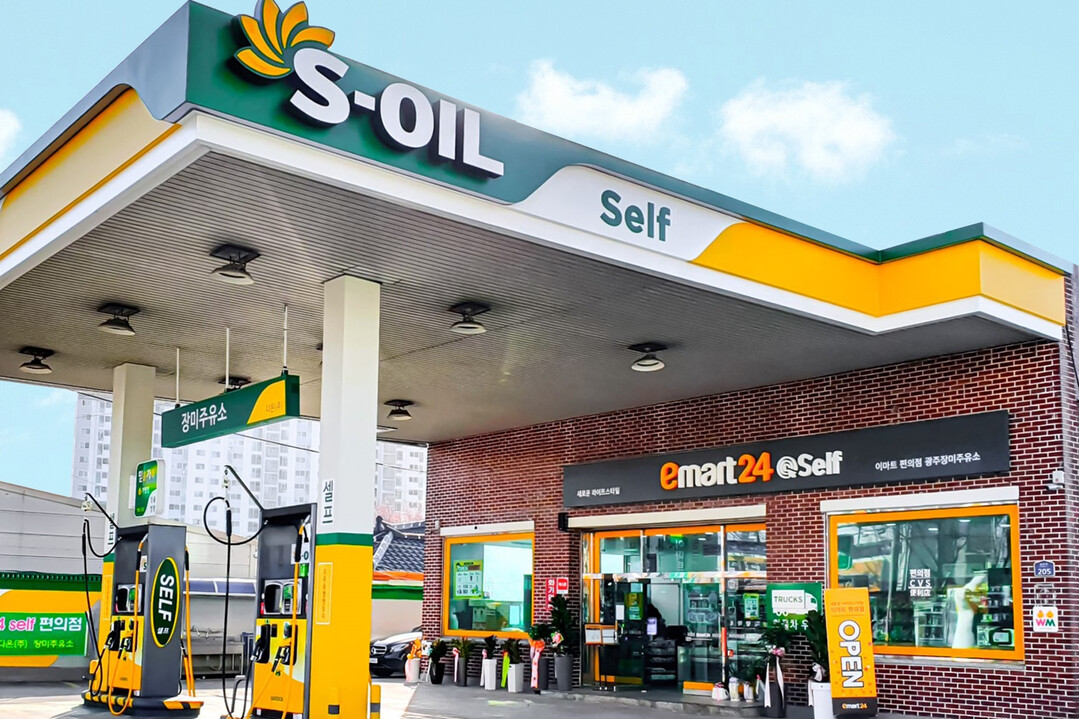
For the tenth consecutive week, the average prices of gasoline and diesel at South Korean gas stations have simultaneously declined, signaling a sustained period of relief for motorists. This downward trend is anticipated to persist in the near term, according to industry analysts.
Data released on Sunday by the Korea National Oil Corporation's oil price information system, Opinet, revealed that the national average selling price of gasoline at gas stations during the second week of April (April 13th to 17th) was 1,644.8 won per liter. This represents a decrease of 13.8 won per liter compared to the previous week.
Examining regional variations, Jeju Island recorded the highest average gasoline price at 1,715.7 won per liter, a drop of 6.0 won from the preceding week. In contrast, Daegu exhibited the lowest average price at 1,601.4 won per liter, marking a more significant decrease of 19.4 won. Among different fuel brands, SK Energy gas stations posted the highest average price at 1,655.2 won per liter, while budget-friendly "Altddeul" (알뜰) gas stations offered the lowest average at 1,622.1 won per liter.
The average selling price of diesel also experienced a notable decline, falling by 13.6 won per liter to reach 1,511.2 won during the same period.
International Oil Price Rebound Expected to Have Delayed Impact
Interestingly, international oil prices exhibited an upward trajectory during the same week. This increase was primarily attributed to several factors, including the U.S. government's decision to grant exemptions on certain reciprocal tariffs, positive announcements regarding progress in trade negotiations, and the Organization of the Petroleum Exporting Countries and its allies (OPEC+) considering further adjustments to their production cuts.
Typically, fluctuations in international oil prices take approximately two to three weeks to be reflected in domestic gas station prices. Consequently, the recent surge in global oil prices is not expected to immediately halt the current downward trend in South Korea. Instead, the delayed impact suggests that domestic fuel prices are likely to remain weak for the immediate future, as the current prices at the pump still reflect the earlier decline in international crude oil.
Dubai Crude Leads International Price Increase
The price of Dubai crude oil, a key benchmark for imported crude in South Korea, rose by $2.5 per barrel compared to the previous week, settling at $66.9 per barrel. International gasoline prices also saw an increase of $2.8 per barrel, reaching $73.7 per barrel. Similarly, the international price of automotive diesel climbed by $2.6 per barrel to $80.9 per barrel.
Industry Expert Predicts Continued Price Weakness
An official from the Korea Petroleum Association echoed the sentiment of continued domestic price weakness. The representative stated, "Considering that the increase in international oil prices this year has been minimal compared to the significant drop observed last week, domestic gas station prices are expected to remain weak for the next two weeks." This forecast suggests that South Korean consumers can anticipate continued moderate fuel costs in the short term.
Factors Influencing the Prolonged Price Decline
Several factors have contributed to the sustained decrease in domestic fuel prices over the past ten weeks. The initial driver of this decline was a significant drop in international crude oil prices stemming from concerns about global economic growth and demand, as well as increased supply. While international prices have since shown some recovery, the lag in reflecting these changes at the pump, coupled with potentially robust domestic inventories, has prolonged the downward trend in South Korea.
Furthermore, government policies and tax adjustments can also play a role in domestic fuel pricing. While the article does not explicitly mention any recent policy changes, it's important to note that these factors can influence the final price consumers pay at the pump.
Impact on Consumers and the Economy
The continued decline in fuel prices provides a welcome respite for South Korean consumers, who have faced fluctuating energy costs in recent years. Lower transportation costs can ease household budgets and potentially stimulate consumer spending in other sectors of the economy. For businesses, particularly those reliant on transportation and logistics, lower fuel prices can reduce operating expenses and improve profitability.
However, prolonged low oil prices can also have implications for oil-producing nations and the global energy industry. Reduced revenues for oil exporters can impact their economies, and sustained low prices may disincentivize investment in future oil production.
Looking Ahead
While the immediate outlook suggests continued low fuel prices in South Korea, the situation remains subject to the volatility of the international oil market. Geopolitical events, changes in global supply and demand dynamics, and decisions by major oil-producing nations can all influence future price movements. Monitoring international benchmarks like Dubai crude and closely observing OPEC+ production strategies will be crucial in predicting the long-term trajectory of domestic fuel prices in South Korea.
In conclusion, South Korean motorists are currently benefiting from a ten-week streak of declining gasoline and diesel prices. While a recent rebound in international oil prices suggests a potential end to this trend in the coming weeks, the immediate forecast points towards continued price weakness, offering temporary relief to consumers and businesses across the nation. The interplay between global oil market dynamics and domestic pricing mechanisms will continue to shape the cost of fuel in South Korea in the months ahead.
[Copyright (c) Global Economic Times. All Rights Reserved.]






























